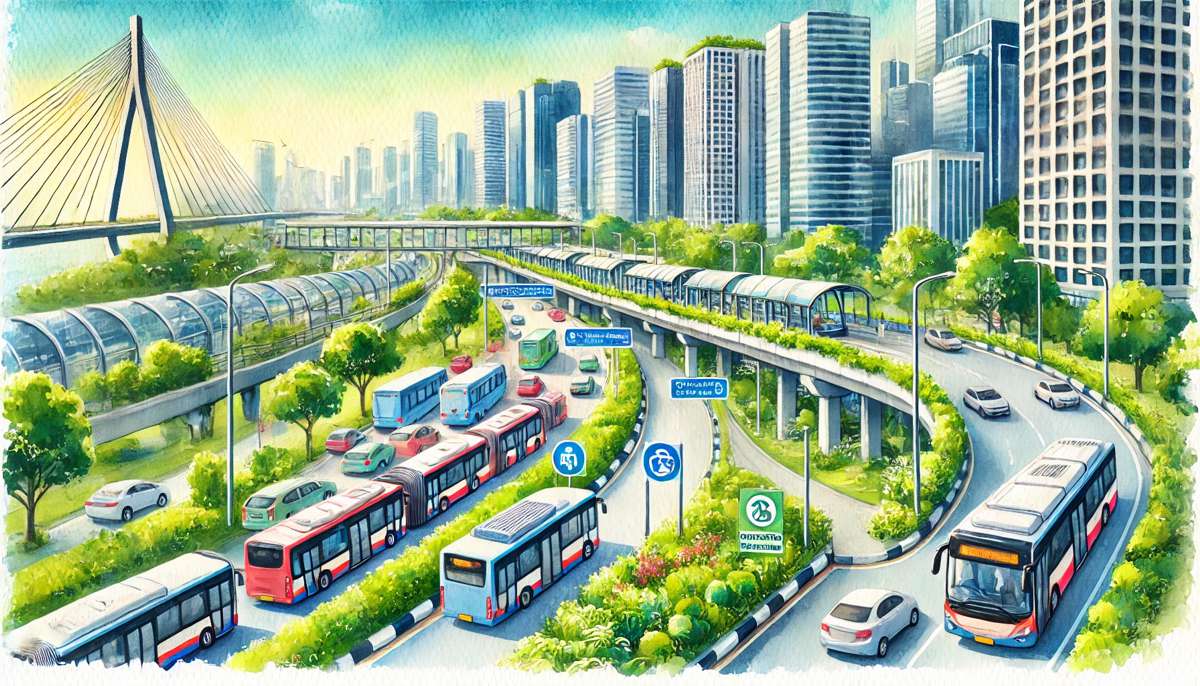Paving the Way for Smarter Cities with Kapsch TrafficCom
Urban congestion has long been a thorn in the side of modern cities, clogging streets, hampering productivity, and escalating pollution levels.
Tackling this pressing issue demands fresh thinking and robust collaboration—and that’s exactly what Comillas University’s Kapsch Chair for Sustainable and Smart Mobility brought to the forefront during their recent event, “Experiences in Congestion Reduction in Cities.”
Bringing together top researchers, policymakers, and urban mobility experts, the event delved into groundbreaking strategies and showcased research aimed at making city life more efficient and sustainable. As cities around the globe grapple with gridlock, the insights presented here provide a timely blueprint for a more mobile future.
Exploring Congestion Through a Data-Driven Lens
Urban congestion isn’t just a logistical challenge; it’s a multifaceted issue shaped by infrastructure limitations, human behaviour, and economic patterns. Alfredo Escribá, CTO of Kapsch TrafficCom, highlighted the importance of evidence-based approaches in developing effective solutions: “By understanding what works—and equally, what doesn’t—in cities facing diverse challenges, we can build better frameworks for congestion management. The research conducted at Comillas University helps pave the way for smart, resilient solutions that benefit both the environment and urban life.”
Escribá’s remarks underscore the event’s central theme: using empirical data to guide the development of smarter, more adaptive policies. This approach not only enhances urban mobility but also ensures sustainability remains at the heart of every solution.
The Science of Smart Mobility
Natalia Collado, a leading researcher at the Kapsch Chair, unpacked the complexities of urban congestion. According to her findings, congestion isn’t just an infrastructure issue; it’s frequently exacerbated by demand-driven phenomena, such as the widespread reliance on private vehicles. Collado explained: “Increasing road capacity alone doesn’t solve congestion; in fact, it frequently encourages higher traffic volumes—a concept known as induced demand.”
Collado’s research revealed three cornerstone strategies for alleviating urban congestion:
- Promoting Public Transportation: Shifting the focus from private vehicles to efficient and reliable public transit systems can dramatically ease congestion while reducing emissions.
- Implementing Pricing Mechanisms: Tools such as congestion pricing and urban tolls create financial incentives to limit unnecessary trips during peak hours.
- Restricting Access Through Low-Emission Zones: By curbing vehicle access in high-density areas, cities can slash pollution levels and encourage alternative modes of transport.
Real-World Applications and Lessons Learned
The event didn’t stop at theory. Collado presented compelling real-world case studies that demonstrated the tangible benefits of these strategies. Redesigned public transit networks, for instance, have significantly improved mobility in several European cities. Similarly, congestion pricing schemes in cities like Stockholm and London have led to measurable reductions in traffic volume and emissions.
Low-emission zones, while effective in reducing air pollution, often fall short in curbing overall traffic volumes. As Collado pointed out: “Each policy impacts urban mobility differently, and effective congestion management often requires a combination of strategies tailored to local conditions.”
Insights from Urban Mobility Leaders
To complement the research findings, the event featured a roundtable discussion with urban mobility leaders from Madrid, Barcelona, Vitoria-Gasteiz, and Málaga. These city representatives shared practical insights into their congestion-reduction initiatives, ranging from integrated public transport systems to innovative traffic management technologies.
For instance, Madrid has focused on expanding its metro and bus networks to offer seamless alternatives to car travel. Meanwhile, Barcelona has implemented “superblocks”—pedestrian-friendly zones that prioritise walking and cycling over motor vehicles. Each speaker emphasised the importance of tailoring strategies to the unique challenges and opportunities of their respective cities.
The Role of the Kapsch Chair in Shaping Mobility
The Kapsch Chair at Comillas University plays a pivotal role in advancing the conversation around sustainable mobility. By fostering collaboration between academia, industry, and urban planners, it serves as a hub for cutting-edge research and practical solutions.
With a focus on intelligent transport systems, the Chair aims to bridge the gap between theoretical research and real-world application. Its partnerships with global leaders like Kapsch TrafficCom enable the development of integrated solutions that not only alleviate congestion but also promote environmental sustainability.
Driving Innovation on a Global Scale
A leader in sustainable mobility solutions, Kapsch TrafficCom brings a wealth of expertise to the table. With projects in over 50 countries, the company specialises in tolling, traffic management, and demand management systems that address the root causes of congestion.
“Our mission is a world without congestion,” the company proclaims, and their track record backs up this bold statement. From end-to-end solutions that cover design, implementation, and operation, Kapsch TrafficCom stands as a beacon of innovation in the mobility sector.
Headquartered in Vienna, the company employs around 4,000 people and achieved revenues of EUR 539 million in the 2023/24 financial year. Their success underscores the growing global demand for sustainable mobility solutions that balance efficiency with environmental responsibility.
Driving Change for Urban Mobility
The event hosted by the Kapsch Chair at Comillas University offers a compelling vision for the future of urban mobility. By combining rigorous research, innovative technologies, and real-world insights, it paves the way for cities to break free from the grip of congestion.
With a growing emphasis on sustainability and collaboration, the path to smarter, more liveable cities has never been clearer. As urban populations continue to swell, these forward-thinking solutions couldn’t come at a better time.





























